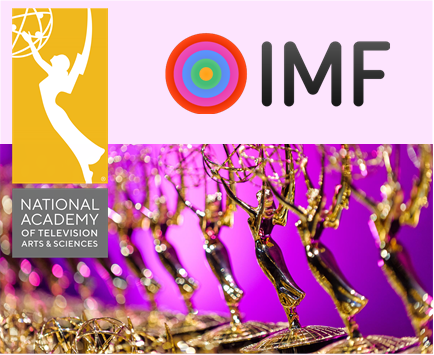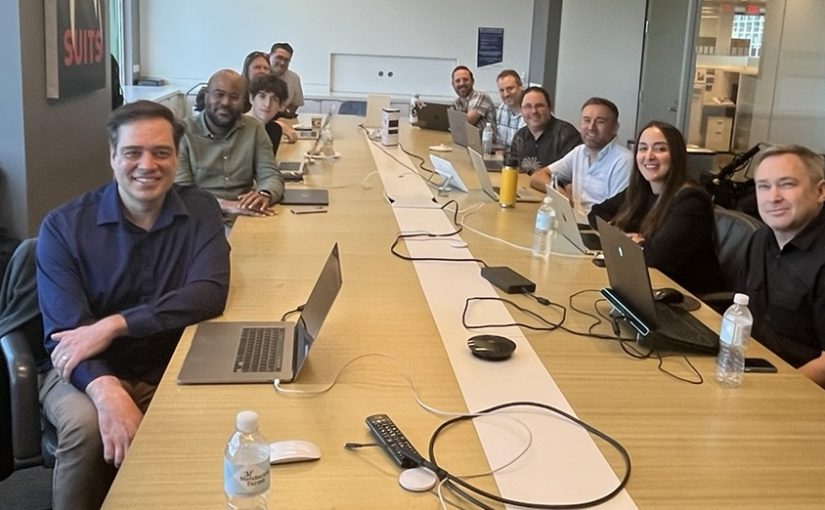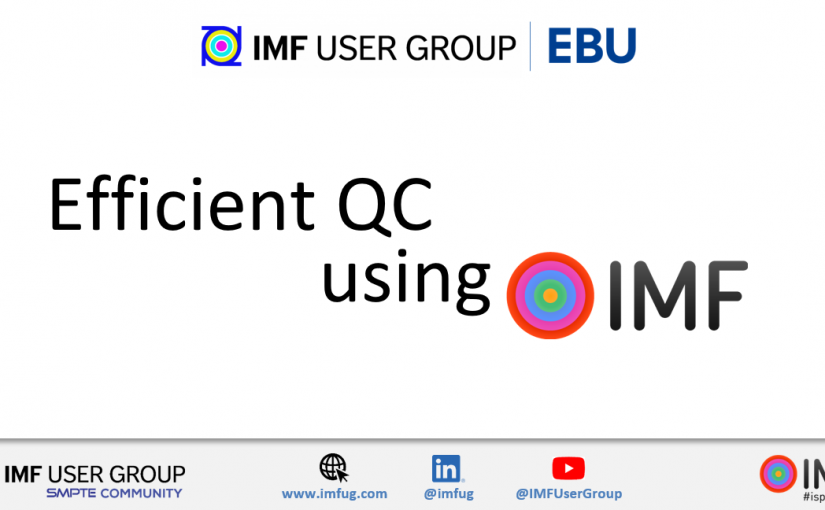Attending IBC 2024? Get to know the Interoperable Master Format (IMF) better at following exhibitors!
Ad Signal
6.C28b
Ad Signal has a range of unique SaaS products. Our Match product deduplicates content regardless of format, codec and resolution. Our patent-pending Compose product is able to create IMF from traditional content fully automatically; paired with Match we identify all of the unique content at the best quality to keep and Compose turns these assets into a single IMF package with all the required CPLs etc. We believe this is the only product capable of doing this to date.
Contact: tom.dunning@ad-signal.io or Meet at IBC
Tedial
1.B18
The smartWork platform offers comprehensive IMF support from acquisition to delivery. With smartWork, customers can select third-party systems tailored to their specific needs, such as mastering, transcoding, QC, and AI tools. By natively storing IMF, smartWork | EVO maximizes standard benefits while simplifying user interaction with the package’s internal structure.
Contact: sales@tedial.com
Ateliere Creative Technologies
5.C24
Ateliere Creative Technologies revolutionizes the media supply chain by delivering AI-driven, cloud-native solutions that streamline content creation, management, and distribution from concept to consumer. Our platform, Ateliere Connect, automates media workflows, reduces storage costs, and accelerates time-to-market, enabling clients to maximize their media profitability. A key component of our service is our integration of the Interoperable Master Format. By leveraging IMF’s component-based architecture, Ateliere helps media companies significantly reduce their online storage footprint, enhance content management, and simplify global distribution, ensuring seamless delivery across all platforms.
Rohde & Schwarz
7.B21
The R&S®CLIPSTER is the gold standard solution for mastering and distribution of feature films and episodic TV. It provides a powerful way to edit any type of media, in any resolution, and create high-quality professional deliverables that meet stringent, professional delivery specifications. Featuring a highly refined IMF delivery wizard R&S®CLIPSTER is able to simplify the creation of IMF’s, so that the outputs are constrained to comply with standards and ensure interoperability. R&S®CLIPSTER makes versioning IMF’s quick and easy and features a dedicated tool to merge and combine multiple IMFs into a single package.
Contact: matthew.ellsworth@rohde-schwarz.com
Colorfront
Private Demo Suite – Okura Hotel
Colorfront, headquartered in Budapest with offices in Los Angeles and sales partners worldwide, is a leader in IMF and DCP mastering and known for its award-winning on-set dailies and transcoding systems used by companies of all sizes for Hollywood blockbusters, high-end TV, and OTT entertainment. Founded in 2000 by Mark and Aron Jaszberenyi, the company combines expertise in image color science and software development, earning an Academy Award for its innovations. Today, Colorfront is renowned for its camera-to-post products and offers advanced cloud services alongside a state-of-the-art DI and post-production facility in Budapest.
Contact: brandon@colorfront.com
Marquise Technologies
7.D47
Marquise Technologies has developed a comprehensive product range for IMF workflows, including the mastering of any IMF application packages, the versioning, the validation and the QC. Marquise Technologies’ mastering & transcoding solutions also permit the creation of digital cinema.broadcast and online deliverables from any IMF master.For IMF master creations or complex versioning MIST Studio is the tool of choice. ICE Studio is the QC solution with version’s comparison, package validations and content analysis capabilities. ICE Prime is the ideal desktop player for IMF playback and control, TORNADO allows volume transcoding to and from IMF, batch validation and analysis.
Contact: lstoll@marquise-tech.com or Meet with us
Venera Technologies
7.D45
Venera Technologies provides cutting-edge AI and ML enabled file-based auto QC solutions to the digital media industry, tailored to the evolving requirements of its customers and the industry. Venera provides a comprehensive list of IMF/DCP QC checks in both its on-prem A/V auto QC solution (Pulsar) and its native-cloud A/V auto QC solution (Quasar). As an active member of the IMF User Group, Venera is the only auto QC vendor with an extensive category of checks for verification of variety of IMF packages.
Contact: Fereidoon@veneratech.com or Meet at IBC
8.B80
With IMF Studio, the Fraunhofer Institute for Integrated Circuits and easyDCP provide proven easyDCP technology tailored to the needs of anybody who masters, creates and inspects IMF packages and exports content to other formats.
IMF Studio consists of our IMF Creator app as well as the IMF Player for quality control on PC and Mac, and comes with flexible licensing options that fit your needs.
Contact: philipp.eibl@iis.fraunhofer.de
Amazon Web Services
5.C90
AWS helps media, entertainment, games, and sports customers transform the way they create, distribute, and monetize content with the most purpose-built services and capabilities for media and entertainment of any cloud. AWS offers M&E customers nine dedicated media services, 23 AWS industry solutions, and the ability to engage with more than 500 AWS for M&E Partners. AWS services and solutions for media and entertainment, games, and sports reinvent and transform the customer journey. Meet with AWS Elemental MediaConvert experts in the Builder Zone of our AWS stand (5.C90) at the RAI. MediaConvert provides native support for IMF, allowing media companies to easily incorporate IMF workflows into their video processing pipelines and distribution processes.
Details: AWS@IBC or Request a meeting or Download the attendee guide (PDF)
Telestream
7.B11
Telestream offers comprehensive solutions for reading (decoding), creating (encoding), and verifying IMF Packages. Vantage Post Producer can decode simple or complex packages and produce flattened outputs, Vantage Transcode Pro can create simple IMF packages from most media files including support for HTJ2K and IAB. For QC Qualify and Vidchecker can QC IMF Packages to ensure compliance.
Contact: Richard Andes

![[PANEL] IMF: Current and Emerging Practices](https://www.imfug.com/wp-content/uploads/2025/10/social-media-banner-720x510.png)

![Fall Mini-Plugfest [August 25, 2025]](https://www.imfug.com/wp-content/uploads/2025/08/ChatGPT-Image-Aug-7-2025-05_15_51-PM-825x510.png)
![Fall Mini-Plugfest [November 5, 2024]](https://www.imfug.com/wp-content/uploads/2024/10/DALL·E-2024-10-24-22.45.06-A-vibrant-digital-illustration-of-the-IMF-UG-Fall-Plugfest-2024-showcasing-a-collaborative-technology-event.-Participants-are-working-around-large-sc.png)



